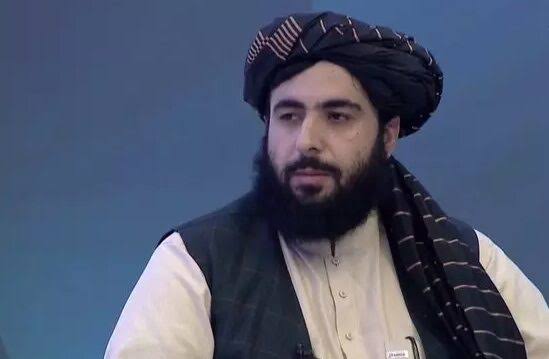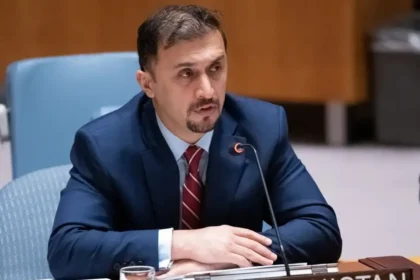RASC News Agency: In response to a stark warning from Moscow over the growing threat of the so-called Islamic State Khorasan Province (ISIS-K) emanating from Afghanistan, the Taliban regime has once again attempted to downplay global security concerns, claiming that the militant group has been fully “neutralized” within the country’s borders. Speaking on Taliban-controlled state television, Hamidullah Fitrat, the group’s deputy spokesman, stated:
“ISIS no longer has any presence in Afghanistan. Their movements have been crushed at the source. We assure the international community that no group will be allowed to use Afghanistan’s soil to threaten other nations.” Yet these assurances stand in sharp contrast to the grave concerns voiced by Yury Kokov, Deputy Secretary of Russia’s Security Council, who recently warned that Afghanistan remains a dangerous haven for extremist operations. Kokov emphasized that ISIS-K is attempting to expand its operational reach from Afghanistan into Central Asia and even toward Russia’s southern borders.
“The instability radiating from Afghanistan,” Kokov warned, “continues to be a serious threat to regional and international security.” Despite repeated Taliban claims that Afghanistan is now secure under their rule, evidence from independent observers, security analysts, and regional governments tells a different story. While the group has staged highly publicized crackdowns on ISIS cells often more symbolic than strategic the core structures of ISIS-K remain operational, especially in eastern provinces like Nangarhar and Kunar, and in northern provinces near Tajikistan. Intelligence sources suggest that underground recruitment, targeted assassinations, and logistical networks tied to ISIS-K continue to function in parts of Afghanistan where Taliban control is fragmented or contested.
Worse still, critics argue that the Taliban’s rhetoric on counterterrorism is part of a broader campaign to project a false sense of competence and control particularly aimed at gaining international recognition and unlocking frozen assets. Reports from Central Asian republics, particularly Tajikistan and Uzbekistan, confirm increased military preparedness along their shared borders with Afghanistan. Enhanced cooperation with Russian intelligence agencies and a boost in border surveillance reflect widespread fears that Taliban assurances lack both transparency and credibility.
Taliban officials have attempted to present themselves as reliable partners in regional stability, but their refusal to establish an inclusive government and their continued persecution of non-Pashtun communities, women, and independent voices have eroded any diplomatic goodwill they once enjoyed. Moreover, Taliban pledges to combat terrorism are undermined by their own record of harboring militants. Notably, the U.S. drone strike that killed al-Qaeda leader Ayman al-Zawahiri in central Kabul in 2022 served as a dramatic exposure of the Taliban’s ongoing links with transnational jihadist networks despite promises made under the Doha Agreement.
In recent months, the Taliban have accelerated their diplomatic outreach to regional powers including China, Russia, and Iran seeking investment and political legitimacy. However, none of these states have formally recognized the regime, and their cooperation remains limited to tactical interests. Security analysts argue that until the Taliban adopt a transparent counterterrorism policy, rooted in credible governance, no regional power will be able to take their pledges seriously. As one Western analyst put it:
“You cannot promise to fight terrorism while simultaneously providing impunity to extremists and suppressing civil society.”
Despite Taliban denials, the threat of ISIS-K and other extremist groups remains deeply embedded within Afghanistan’s fragmented security landscape. Without a legitimate government, a functioning judicial system, or credible counterterrorism partnerships, Afghanistan under Taliban control continues to serve not as a bulwark against extremism but as a breeding ground for it.






